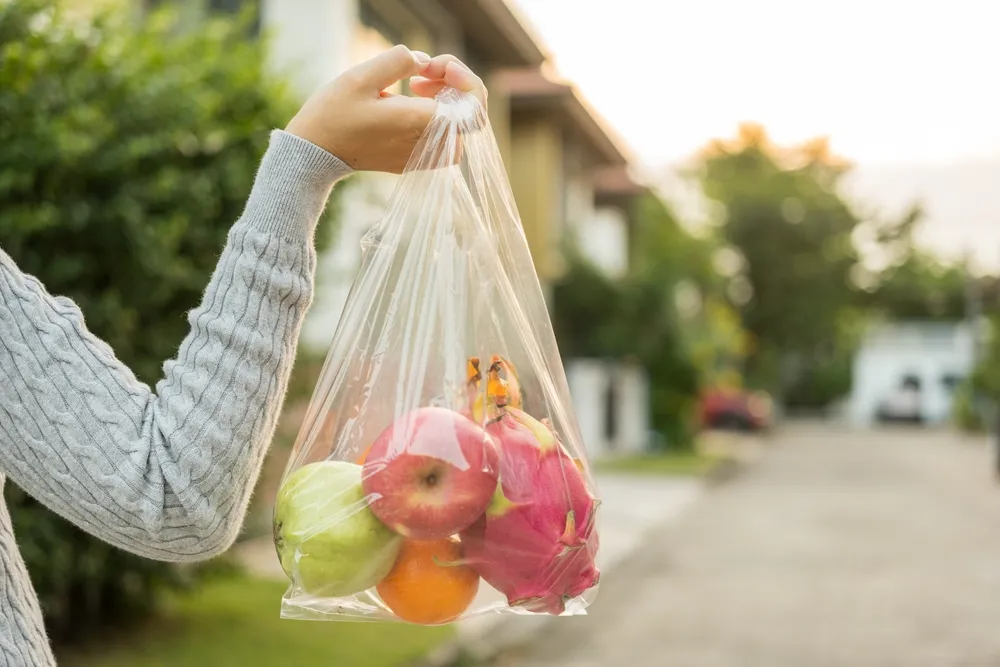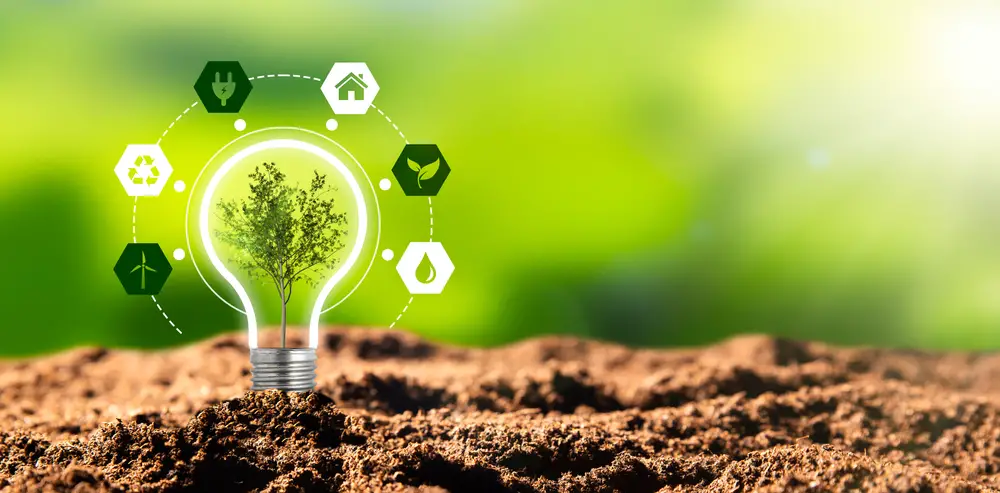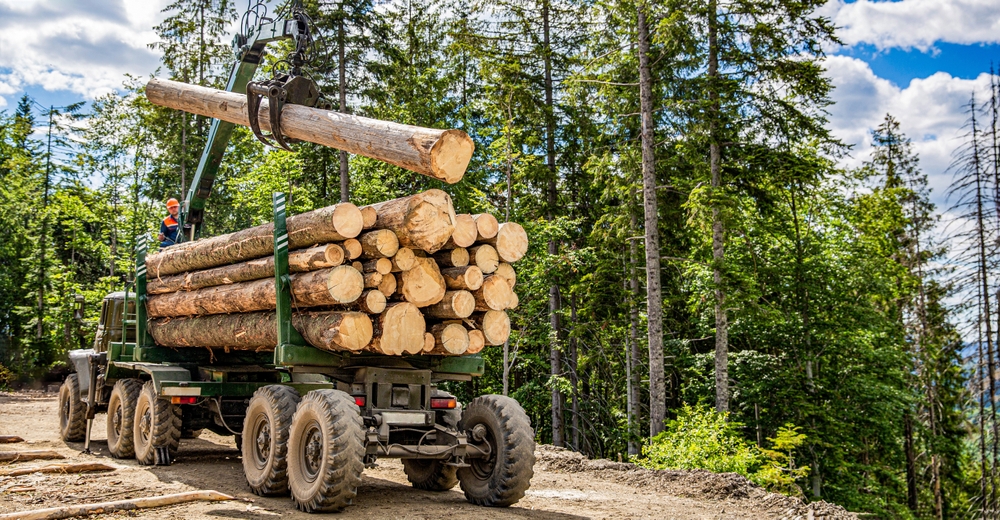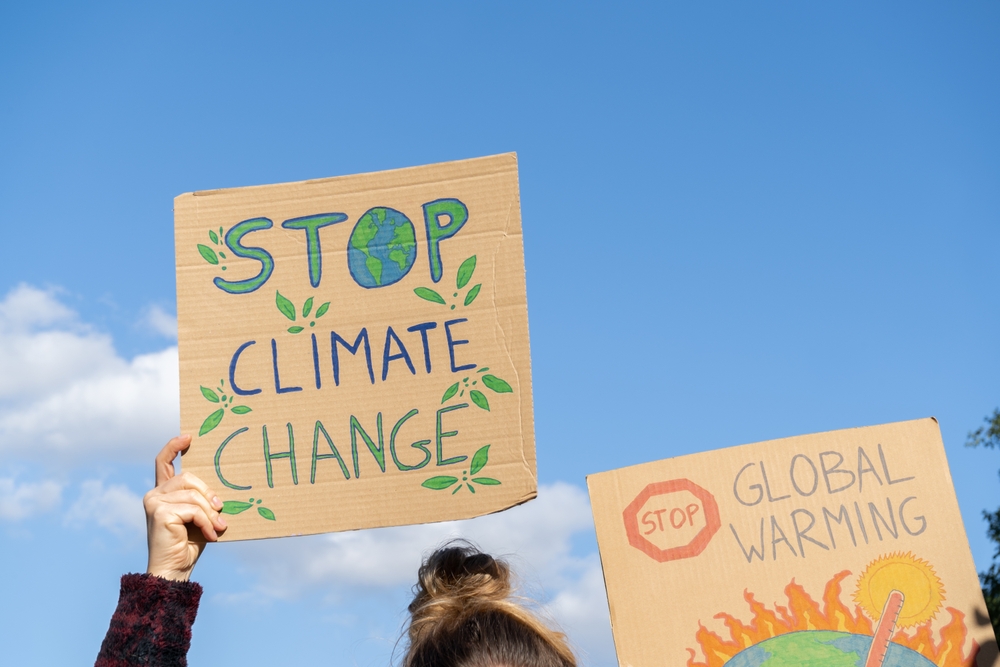As we navigate the complexities of the 21st century, our daily habits are under more scrutiny than ever, particularly those impacting the climate. Future generations will likely raise eyebrows at many of our current practices, viewing them as relics of a less enlightened time. Here are 13 climate habits that might invite their judgment and the reasons why we should start rethinking them today.
1. Our Reliance on Single-Use Plastics

Single-use plastics have become a staple in our daily routines—think water bottles, straws, and shopping bags. We embrace their convenience, often ignoring the environmental cost, which includes pollution and wildlife harm. While it feels like a small act to grab a plastic water bottle, the collective impact is staggering. According to a study by National Geographic, about 91% of plastic isn’t recycled, ending up in landfills or oceans.
In the future, people might find it hard to believe that we willingly chose materials designed to last centuries for items used for mere minutes. The solution lies in shifting from convenience to consciousness. Reusable alternatives are increasingly available, making it easier to break the single-use cycle. By integrating these into your life, you not only reduce waste but also contribute to a cultural shift towards sustainability.
2. Our Excessive Energy Consumption

Leaving lights on, running the air conditioner when no one’s home, and using energy-hungry appliances are habits that many have normalized. The energy we waste stems from a culture of abundance and a lack of awareness about its sources and impacts. Fossil fuels, predominantly powering our lifestyle, emit greenhouse gases, contributing to climate change. This contributes to a cycle of energy production that harms the planet.
In the eyes of future generations, the disregard for energy efficiency might seem careless. Encouraging energy-conscious behavior starts with small steps like turning off lights or investing in smart home technology. Emerging green energy options, like solar and wind, are becoming more accessible and should be part of your energy plan. By adjusting our energy habits, we can significantly influence carbon emissions and inspire sustainable living.
3. Our Fast Fashion Addiction

The allure of fast fashion is hard to resist—trendy, affordable clothes at your fingertips. But this comes with a massive environmental footprint, from resource-heavy production to wasteful disposal. The Textile Exchange reports that the fashion industry is responsible for 10% of global carbon emissions. This is exacerbated by the rapid cycle of trends, prompting overconsumption and waste.
In hindsight, our obsession with ever-changing fashion trends may be seen as reckless. Conscious consumerism is the antidote, urging you to buy less and choose quality over quantity. Second-hand shopping and supporting sustainable brands are practical ways to reduce fashion’s impact. By redefining our relationship with clothing, we can turn the tide on this environmental crisis.
4. Our Love Affair With Cars and Planes

Our love affair with cars and planes has fueled a dependency on fossil fuels that’s hard to break. The convenience of driving or flying masks the fact that transportation is a leading contributor to carbon emissions. This reliance reflects an era unwilling to invest in sustainable infrastructure or alternative fuels. The consequences are evident in air pollution, climate change, and health issues.
Future generations might see this as an era of missed opportunities for innovation. Yet, change is on the horizon with the rise of electric vehicles and improved public transport systems. Supporting these advancements and opting for sustainable travel methods, when possible, can make a difference. Change often starts with personal decisions that contribute to a larger cultural shift away from fossil fuels.
5. Our Food Waste Negligence

It’s all too easy to let food spoil in the fridge or discard leftovers, contributing to an alarming food waste problem. According to the Food and Agriculture Organization, roughly one-third of the food produced globally is wasted, squandering resources and generating methane in landfills. This is not just a waste of food but also of water, energy, and labor. The disconnect between production and consumption highlights inefficiencies in the food system.
Future generations might find our wasteful habits appalling, given the environmental and humanitarian implications. Reducing food waste starts with mindful shopping and storage practices. Composting and supporting food recovery initiatives can also mitigate waste. Embracing a more sustainable food cycle is crucial for conserving resources and reducing emissions.
6. Our Mindless Consumption

Our daily habits often include excessive water use, deforestation for products, and overfishing, driven by a lack of foresight. These actions reflect a disconnect from the natural world, treating its resources as infinite. The environmental repercussions are profound, leading to habitat destruction, biodiversity loss, and resource scarcity. Such practices underline a critical need for sustainable resource management.
As awareness grows, future generations will likely be more attuned to the balance required to maintain ecosystems. You can start by adopting water-saving practices, supporting sustainable products, and being conscious of consumption habits. Embracing a lifestyle that prioritizes ecological balance over convenience is essential. These steps, though small, contribute to preserving the planet’s resources for future generations.
7. Our Love of Meat and Dairy

Our collective preference for meat and dairy has significant environmental consequences, from greenhouse gas emissions to land degradation. The United Nations highlights that livestock production is responsible for a significant percentage of agricultural emissions. Despite the growing evidence supporting plant-based diets, many resist this shift, clinging to traditional eating patterns. The impact of our dietary choices reaches far beyond personal health.
Future generations may view our resistance to dietary change as a lack of commitment to environmental well-being. Transitioning to a plant-based diet, even partially, can dramatically reduce your ecological footprint. Embracing alternatives like meatless Mondays or exploring plant-based recipes are simple ways to start. By aligning our diets with ecological principles, we can help ensure a more sustainable future.
8. Our Overuse of Water

In many parts of the world, water is a scarce resource, yet the habit of overusing it persists. Daily activities, such as long showers, over-watering lawns, and ignoring leaks, contribute to this problem. The impact of water overuse is felt in depleted reservoirs, reduced river flows, and stressed ecosystems. This reflects a broader issue of undervaluing this vital resource.
Future generations might wonder why we didn’t act sooner to preserve water. You can make a difference by adopting water-saving habits, like fixing leaks and using efficient appliances. Supporting policies and technologies that promote water conservation is also crucial. Our actions today can secure water access and sustainability for future generations.
9. Our Disregard for Local Ecosystems

People often overlook their role in protecting local ecosystems, engaging in practices like pesticide use and urban sprawl. These actions disrupt habitats, reduce biodiversity, and compromise ecosystem services. Local ecosystems provide crucial services, including air and water purification, yet they’re often taken for granted. The loss of biodiversity is a pressing issue, with direct links to human survival.
Future generations may be baffled by our short-sightedness in protecting the ecosystems we rely on. Supporting local conservation efforts and reducing harmful practices are steps you can take. Engaging with community initiatives and learning about native species can foster a deeper connection to the environment. This awareness and action are vital for preserving natural heritage.
10. Our Slow Support of Renewable Energy

Our reliance on fossil fuels persists despite the availability and potential of renewable energy sources. The slow adoption of solar, wind, and hydroelectric power reflects a resistance to change. This reliance has entrenched harmful emissions and environmental degradation. The transition to renewables is not just about energy but also about reshaping economic and environmental landscapes.
Future generations might struggle to understand why we didn’t accelerate renewable energy adoption. As a consumer, you can support this shift by choosing renewable energy providers or investing in home solar panels. Advocating for policies that promote clean energy is another impactful way to contribute. By supporting renewables, you play a part in transitioning to a sustainable energy future.
11. Our Waste of Paper and Wood

In an increasingly digital world, the continued wastefulness of paper and wood products remains perplexing. This waste contributes to deforestation and habitat destruction, impacting biodiversity and climate systems. Despite recycling efforts, a significant amount of paper still ends up in landfills. The environmental costs of paper production are often hidden from consumers.
Future generations might view our paper habits as a missed opportunity for environmental stewardship. You can reduce waste by opting for digital over paper and supporting recycled products. Implementing simple practices, such as printing double-sided, makes a difference. These habits can propel us toward a more sustainable use of resources.
12. Our Lack of Green Spaces

Urbanization has led to a decline in green spaces, often overlooked for their environmental and social benefits. Parks, gardens, and urban forests contribute to biodiversity, air quality, and community well-being. Despite their importance, these areas are frequently undervalued and underfunded. The loss of green spaces impacts wildlife and increases vulnerability to climate change.
Future generations may find our neglect of green spaces puzzling, given their proven benefits. You can advocate for and participate in initiatives to protect and expand these areas. Supporting urban planning that incorporates nature helps create resilient, livable cities. This commitment to green spaces is crucial for fostering a harmonious relationship with nature.
13. Our Avoidance of Climate Education and Advocacy

People often shy away from climate education and advocacy, perceiving it as overwhelming or polarizing. This avoidance undermines efforts to address climate change and hinders progress. Climate literacy is vital for informed decision-making and driving collective action. A lack of engagement perpetuates the status quo, delaying necessary changes.
Future generations might question why we didn’t empower ourselves with knowledge and action. Engaging with climate education can start with exploring credible resources and discussions. Advocating for climate policies and supporting organizations focused on sustainability are tangible steps. By embracing climate education, you equip yourself to be part of the solution and inspire others to join the cause.
